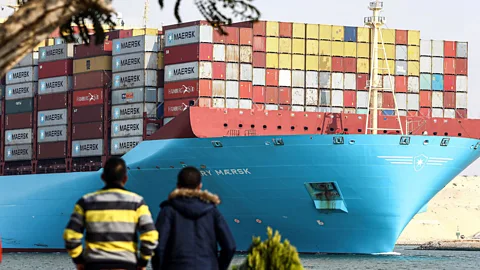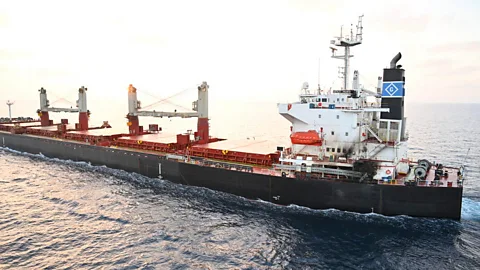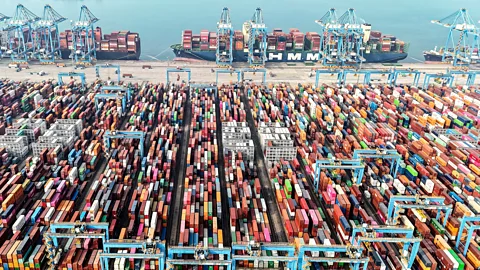Wednesday, October 30, 2024
SPITTING IN FOOD - THE SOURCE OF THE PROBLEM
- This month, two Indian states plan to impose hefty fines and imprisonment for contaminating food with spit, urine and dirt.
- The northern state of Uttarakhand will fine offenders up to 100,000 rupees ($1,190; £920), while neighbouring Uttar Pradesh is set to introduce stringent laws to address the issue.
- The government directives followed the circulation of unverified videos on social media showing vendors spitting on food at local stalls and restaurants.
- videos sparked outrage among users, with many expressing concern about food safety in these states
strict laws are necessary and are aimed at deterring people from indulging in unhygienic practices around food
Food and food habits are sensitive subjects in culturally-diverse India as they are deeply intertwined with religion and the country's hierarchical caste system. Norms and taboos around food sometimes lead to clashes between communities, sparking feelings of distrust. Consequently, the notion of "food safety" has also become entangled with religion, which is sometimes used to ascribe motive to alleged incidents of contamination.
unsafe food causes around 600 million infections and 400,000 deaths annually
- when videos of vendors spitting in food came out, people were shocked and outraged. Soon after, Uttarakhand announced hefty fines on offenders and made it mandatory for police to verify hotel staff and for CCTVs to be installed in kitchens.
- In Uttar Pradesh, Chief Minister said police should verify every employee. The state also plans to make it mandatory for food centres to display the names of their owners, for cooks and waiters to wear masks and gloves and for CCTVs to be installed in hotels and restaurants.
- ordinances that will penalise spitting in food with imprisonment up to 10 years.
- police in Barakanki town arrested restaurant owner Mohammad Irshad for allegedly spitting on a roti (flat bread) while preparing it. Irshad was charged with disturbing peace and religious harmony, the Hindustan Times newspaper reported.
- Earlier this month, police in Mussoorie, Uttarakhand, arrested two men - Naushad Ali and Hasan Ali - for allegedly spitting in a saucepan while making tea, and accused them of causing public outrage and jeopardising health, reported The Hindu.
- videos of the men spitting found their way onto social media days before they were arrested
police have started conducting surprise checks at eateries
"urge people to wear masks and gloves and install CCTVs" wherever they go for checks
need for new ordinances and laws around food safety
My Comments : These folks in India, Pakistan and Bangladesh have long been into these dysfunctional behaviours. I found this:
Dysfunctional behaviors are strange social behaviors that violate social norms, actions that are unexpected or different from what is typical or usual. They can be caused by physical or mental health problems.
That is too many words. I like to be brief - they are just stupid and they are mentally retarded. Low IQ.
Jayanth Bhandari says there are only two types of societies in this world. The First World (the West, Japan, China, Taiwan, Singapore, South Korea, Hong Kong) and "The Rest". The Rest is home to the stupids and the mental retards in huge numbers.
The society is so rotten in these countries that every year there are about TWO MILLION people leaving India to seek a better life elsewhere. Pakistan and Bangladesh together add about another million to this number. These are Permanently Failed Societies or PFS. Even their own people cannot bear to live there anymore. (But dont the people realise that indeed they themselves are the problem? The problem with India is that is where the Indians live).
The South African comedian Dr Riaad Moosa joked that even during the heights of apartheid the Indian "migrants" were banging on the doors to get into South Africa.
More recently groups of Indians signed up to fight in the ongoing war in Ukraine. The US Dollar pay was too irresistible for them. Out of one such group of 15 Indian 'mercenaries', 13 of them were killed. I dont know what happened to the two who survived. Maybe they went to South Africa. But rest assured more Indians are ready to sign up to die in Ukraine. It is better than what they have back home.
After the Hamas attack against Israel on October 7th last year about 300,000 Arabs from Gaza have permanently lost their daily jobs in Israel as farm labourers, construction and factory workers. The Israelis have announced that these 300,000 Gazans will never be allowed to work in Israel again. It has been suggested that Israel recruit Hindu workers from India to replace those 300,000 Arabs.
Israel seeks 10,000 Indian construction workers, offering Rs 1.92 lakh/month salary
- The Economic Times, Sep 10, 2024
Once again Indians are willing to risk life and limb to work in war zones.
These are the Permanently Failed Societies. They uphold strange religious and cultural beliefs which only causes them problems and makes their lives difficult. Their beliefs are obviously satanic beliefs - otherwise they will not cause them so much trouble.
ٱلشَّيْطَـٰنُ يَعِدُكُمُ ٱلْفَقْرَ وَيَأْمُرُكُم بِٱلْفَحْشَآءِ ۖ وَٱللَّهُ يَعِدُكُم مَّغْفِرَةًۭ مِّنْهُ وَفَضْلًۭا ۗ وَٱللَّهُ وَٰسِعٌ عَلِيمٌۭ
Surah 2:268 "Satan promises you poverty and commands you to immorality, while Allah promises you forgiveness from Him and bounty. And Allah is all-Encompassing and Knowing".
So if you are stuck in poverty generation after generation, and you are stuck in stupid beliefs and dysfunctional behaviours generation after generation - well your good friend Satan is sitting on your shoulder and pissing into your ears.
When the white man had to leave India, Malaysia, Singapore, Hong Kong, Middle East etc many of them cried. These lands - our lands - had made the white man so rich. Yet the people who have taken back their lands from the white man now live in such poverty and immorality. Now these people want to migrate to the white man's countries in Europe, America, Canada, Australia, New Zealand. Why? Because the white man does not spit in the food.









